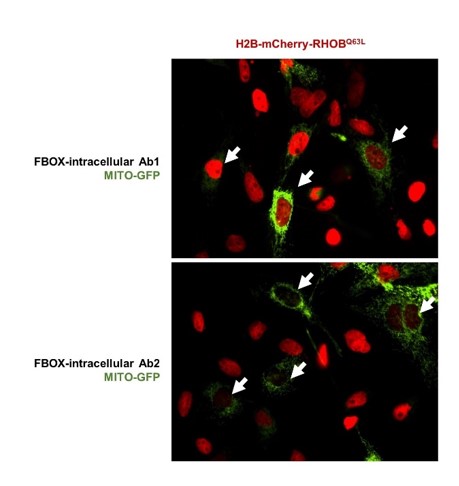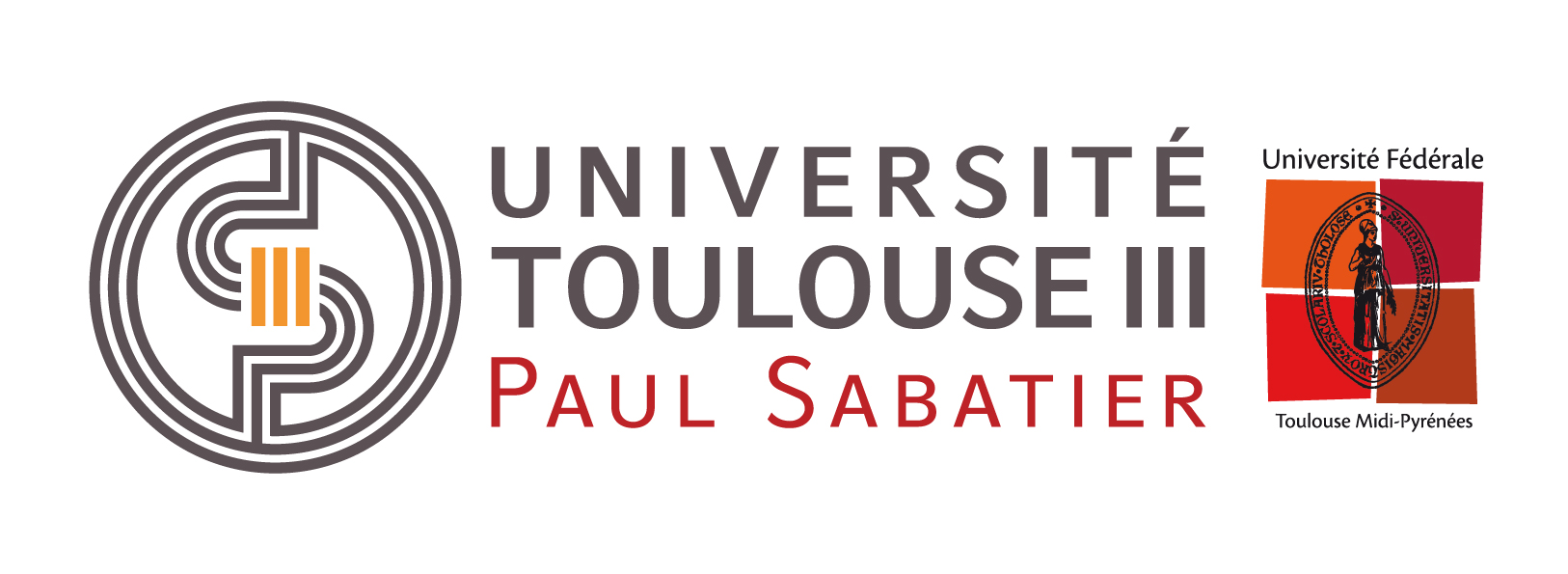Protocol for selecting antibodies that degrade their antigen in cells.
Intracellular antibody
targeted protein degradation
cellular screening
Nicolas Béry – T ImPACT : Therapeutic innovation in pancreatic cancer and Aurélien Olichon – SIGNATHER team: Cellular signalling, oncogenesis and therapeutics
It is important to be able to identify and validate new therapeutic strategies for proteins that are not currently targeted by inhibitors in cancer.
Therapeutic antibodies are the molecules of choice for the standard treatment of many forms of cancer. Their application is so far restricted to the extracellular compartment because they are too large to cross the cell membrane. As most of the therapeutic targets of cancer seem to be located in the intracellular milieu. With the development of antibody genetic engineering, it has been possible to use recombinant antibody fragments produced in cells by integrating into the cell the DNA molecule needed for its production by the cellular machinery. These antibodies can be functionalised with degradation domains for example. Once produced by the cell, they degrade (so-called degrading antibodies) their target and cause cell death and thus tumour regression in the long term.
In this study, the team developed a detailed protocol for the selection of intracellular ‘degrading’ antibodies using the technique of cell-based screening, which aims to identify those that have activity of interest at the cell level, either by modifying a particular cell function or by acting on the cell as a whole.
Previously, this team employed this method to select degrading antibodies targeting GFP fusions (Moutel S, et al. Elife, 2016) and more recently the active conformation of the small GTPase RHOB (RHB-GTP) using a modified cell line (Bery N, et al. Cell Chem Biol).
In this new publication, antibodies selected by an in vitro technique (called phage display) are directly fused to a domain of an E3 ubiquitin ligase. This domain allows the delivery of the antibody’s target protein to the proteasome, which is a cellular machinery that removes proteins from cells. In order to visualise the ability of these antibodies to degrade their intracellular antigen, we fused the antibody target protein to a fluorescent protein that is expressed in a cell line. In cell-based screening, an antibody is considered a degrader if it decreases the fluorescent signal of the fluorescent target protein. We used this protocol as a starting point to select a RHOB-GTP degrading antibody and study its function in various cellular processes. This protocol can be applied to custom select intracellular “degrading” antibodies that may be particularly useful in the fight against pancreatic cancer.
Collaborations and acknowledgements
This work was carried out between team 3 (Pr Gilles Favre, Dr Aurélien Olichon) and team 10 (Dr Nicolas Béry).
This work is funded by the Fondation pour la Recherche Médicale (FRM) (FRM labelled team [DEQ20170839117]) G.F. and A.O. N.B. is supported by a grant from the Fondation de France
One picture

Representative images obtained from the cell screen after transfection of the intracellular antibody-based degrading plasmid (FBOX-intracellular Ab-IRES-MITO-GFP) into the stable H2B-mCherry-RHOBQ63L cell line. FBOX is a domain of the E3 ubiquitin ligase. White arrows indicate transfected cells (green mitochondria) where a decrease in mCherry fluorescence is only observed with the intracellular Ab2 FBOX in the stable H2B-mCherry-RHOBQ63L cell line.
Discover the published article
STAR Protoc. 2020 Dec 30;2(1):100249.doi: 10.1016/j.xpro.2020.100249. eCollection 2021 Mar 19.
Protocol to select conformation-specific intracellular antibodies for targeted protein degradation in an engineered cell line
Nicolas Bery, Gilles Favre , Aurélien Olichon

Toulouse Cancer Research Center (Oncopole)
Toulouse – FR
Contact us
+33 5 82 74 15 75
Want to join
the CRCT team ?




